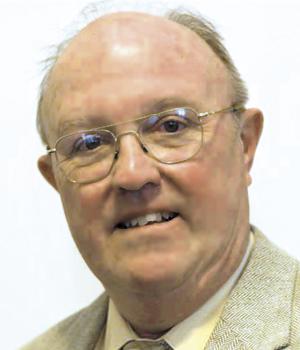The question is not whether Americans have access to healthcare
Don Flood's Jan. 23 column and U.S. Sen. Bernie Sanders, I-Vt., (remember him?) have it about half right on healthcare, or the repeal and replacement of Obamacare.
Sanders asked Health and Human Services nominee Tom Price if he thinks Americans "have a right" to healthcare. Price, a physician and House member from Georgia, said he thinks Americans have a right to "access" to healthcare.
Sanders is in favor of government healthcare, or a variation of socialized medicine. Hence his question about a "right" to health care. He also "gets it" that access means different things to different people.
So the question here is not whether Americans have access to healthcare. That has been true for some years now.
Rather, Sanders is asking whether you and everyone else have a right to free healthcare. That is, healthcare paid for by someone else or the taxpayers.
To return to one point above, today everyone has a "right" to healthcare. If you don't care to go to your family doctor and you are sick, or if you don't have a family doctor, you can go to the emergency room. They are, by law, required to treat you. You may wait hours to be seen, but you will be, eventually. They will bill you, and it will be a big bill because emergency rooms are expensive.
But they can't force you to pay. They can sue you, but if you have no money, they can't collect.
A government system is quite different. We already have three government systems in the United States. One is Medicare, which is health insurance for those of us over 65 or who qualify because of other Social Security programs. A second is the Veterans Administration. And then there is the third one: Medicaid. This program provides insurance for the poor. President Obama greatly expanded Medicaid as a part of Obamacare. States that didn't opt out of this, such as Delaware, are squirming now because of the horrific cost.
Many progressives would favor Medicare for all. Medicare, at least right now, is fully funded through payroll taxes for Social Security. This is called FICA, or the Federal Insurance Contributions Act. This is a payroll deduction for most people, or a "voluntary" contribution if you are self-employed, of about 15 percent total. This funds your Social Security when you collect it and Medicare hospitalization (Part A). Part B, which pays for doctor bills, is a deduction from your Social Security benefit when you begin receiving it.
So if Congress enacted Medicare for all, the inevitable parallel provision would have to be a sharp rise in workers' FICA tax. In the private sector, a comparable deduction is upwards of 30 percent or higher. That's what Medicare for all would look like. It's also about what happens in countries with socialized medicine, like Canada and Great Britain, to name only two.
In other words, there is no "free" healthcare, as Bernie Sanders and others like him would have you believe. Someone has to pay for it.
Several things can be said about socialized medicine. First, healthcare becomes available to all without direct payment. You don't pay your doctor. You don't pay the hospital. None of that. The government pays. This is the good news.
The bad news comes in two or three parts. The first is that while healthcare is available to all, you sometimes have to wait for it in ways you do not in the United States today. Progressives like to tout the socialized systems in Canada and Cuba as examples.
However, it is well known that if Canadians need certain kinds of medical specialists, they often come to the United States and just pay for it rather than wait months, even years, to see a doctor there.
The second negative is doctor quality. If doctors are government employees, as they are in Great Britain, they only earn what the government decides to pay them. This is not much of an incentive to go to medical school. If physicians only earn what an auto mechanic makes, why not be an auto mechanic?
Then there is the interesting question of hospital emergency rooms. We have had four experiences in recent months with emergency rooms, three in the United States and one under socialized medicine. In all three U.S. instances, we were received, triaged and wheeled into an examining room. In all three cases, a nurse or a doctor tended to us very soon. This may not always be the case in a big-city emergency room.
And just so in Canada as well. There, we arrived with the identical problem, but we were given a number and told to take a seat with at least 60 other folks. We waited two hours in significant distress. On the way in, the ambulance attendant told us, as U.S. types, that the wait could be from three to 10 hours. That is because, he said, under socialized medicine, everyone goes to the emergency room for everything, including aches and pains.
So the prioritization (1-5) means everything. Heart attacks and gunshot wounds rank way ahead of the sniffles and aches and pains.Sometime soon, unless the wheels come off the cart, Obamacare will be repealed and replaced. Then, Americans (unlike Canadians) will have a choice as to what kind of health insurance they want to pay for, if any.
But do not doubt me. Progressives will never give up their dream of socialized medicine, which they will insist on calling a "government option."
Reid Beveridge has covered politics in Texas, Iowa, Wisconsin, Delaware and Washington, D.C. He is now retired at Broadkill Beach. Beveridgere@prodigy.net.

















































